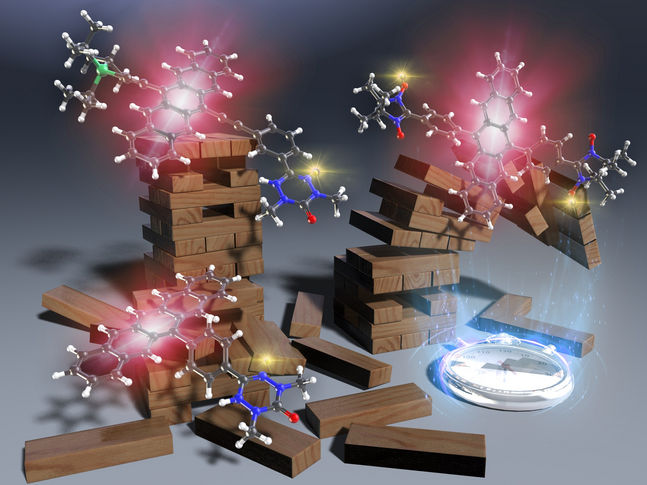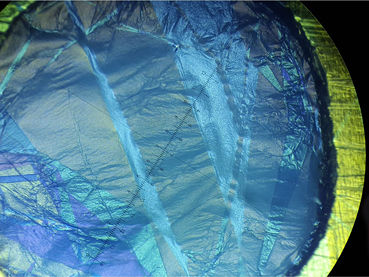Scientists synthesize new photostable organic semiconductor
Successful development of pentacene derivative that has 100 times more light durability than conventional products
Due to their high hole mobility, pentacene and its derivatives have been the representative organic semiconductors and have been the subject of much research, both basic and applied. In particular, they are expected to be applied to semiconductor devices such as field-effect transistors. In addition, organic semiconductors have the advantage of being inexpensive to produce by inkjet printing and having low environmental impacts because they do not use metals. However, the backbone of organic semiconductors such as pentacene easily reacts with oxygen molecules under visible light, resulting in the loss of useful properties.

Light instability is a major factor preventing organic semiconductors from being implemented. Researchers from Osaka Metropolitan University demonstrated the ultrafast intersystem crossing of the pentacene moiety in pentacene radical links made the organic semiconductor much more photostable. This is the fastest enhanced intersystem crossing ( 10-13 seconds) demonstrated in a purely organic material without heavy atoms.
Yoshio Teki
A research group led by Professor Yoshio Teki of the Graduate School of Engineering, Osaka Metropolitan University, has achieved photostability more than 100 times higher than that of TIPS-pentacene, a famous commercially-available pentacene derivative, by increasing the planarity of the molecule and strengthening the conjugation of π electrons between a radical substituent and pentacene moiety. At the same time, to elucidate the mechanism of the remarkable photostability, ultrafast transient absorption measurements using a femtosecond pulsed laser were performed to clarify the peculiar excited-state dynamics of this system. Focusing on the pentacene moiety of the system, they found that intersystem crossing occurs at an ultrafast rate (10-13 seconds), which has never been achieved before in purely organic materials containing no heavy atoms. Furthermore, the subsequent ultrafast deactivation to the ground state was observed to occur within a time of about 10-10 seconds.
“Excellent photostability was achieved by adding a radical substituent that enhances the planarity of the molecules and strengthens the conjugation of π electrons,” stated Professor Teki. “In the future, we would like to verify the performance of field-effect transistors and apply them as organic semiconductors.”
Original publication
Other news from the department science

Get the chemical industry in your inbox
By submitting this form you agree that LUMITOS AG will send you the newsletter(s) selected above by email. Your data will not be passed on to third parties. Your data will be stored and processed in accordance with our data protection regulations. LUMITOS may contact you by email for the purpose of advertising or market and opinion surveys. You can revoke your consent at any time without giving reasons to LUMITOS AG, Ernst-Augustin-Str. 2, 12489 Berlin, Germany or by e-mail at revoke@lumitos.com with effect for the future. In addition, each email contains a link to unsubscribe from the corresponding newsletter.



























































